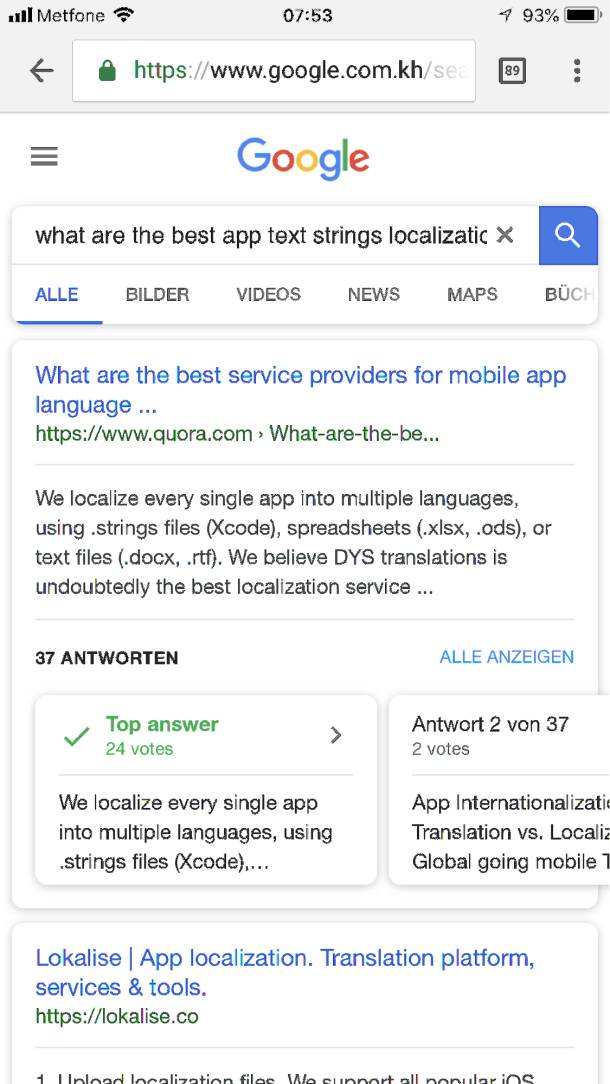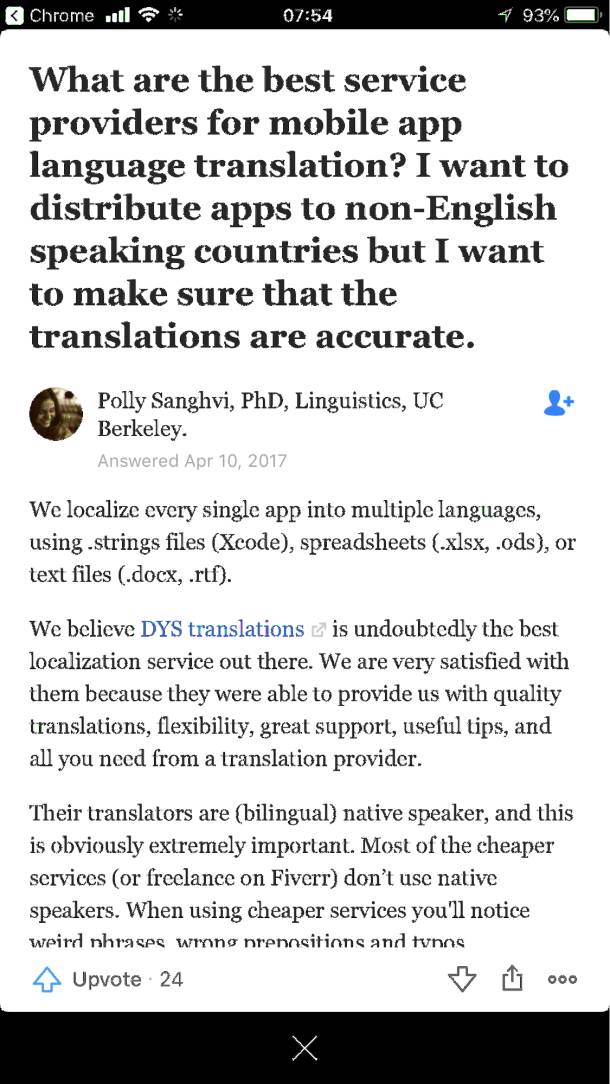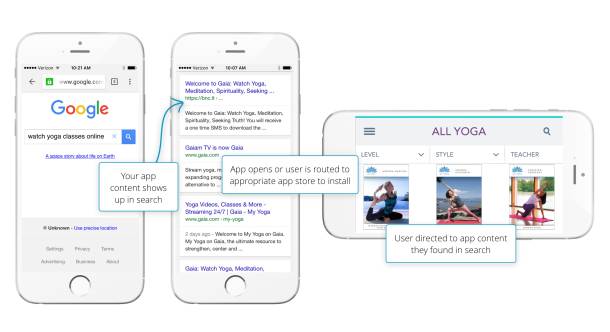App indexing enables Google to supplement the search results displayed on a smartphone or tablet with content from indexed apps. This serves to offer mobile internet users a better experience when searching for and consuming mobile online content.
App indexing is therefore the basic requirement for connecting apps and the mobile web. This is made possible by the use of deep links, which are built into the source code of the apps. By using an API or integrating appropriate code, Google can crawl an app's deep links and integrate them into the Google index for mobile search results. If you use deep links in your own apps, users can be directed straight from the search results to a specific point in the app or to the download, or rather the respective app store entry for the app. If someone asks a question on Google that an app can answer, even Google's autocomplete function will show the answer from the mobile app. Since many app publishers still do not use this option, this technology can give you a head start over your competitors.





